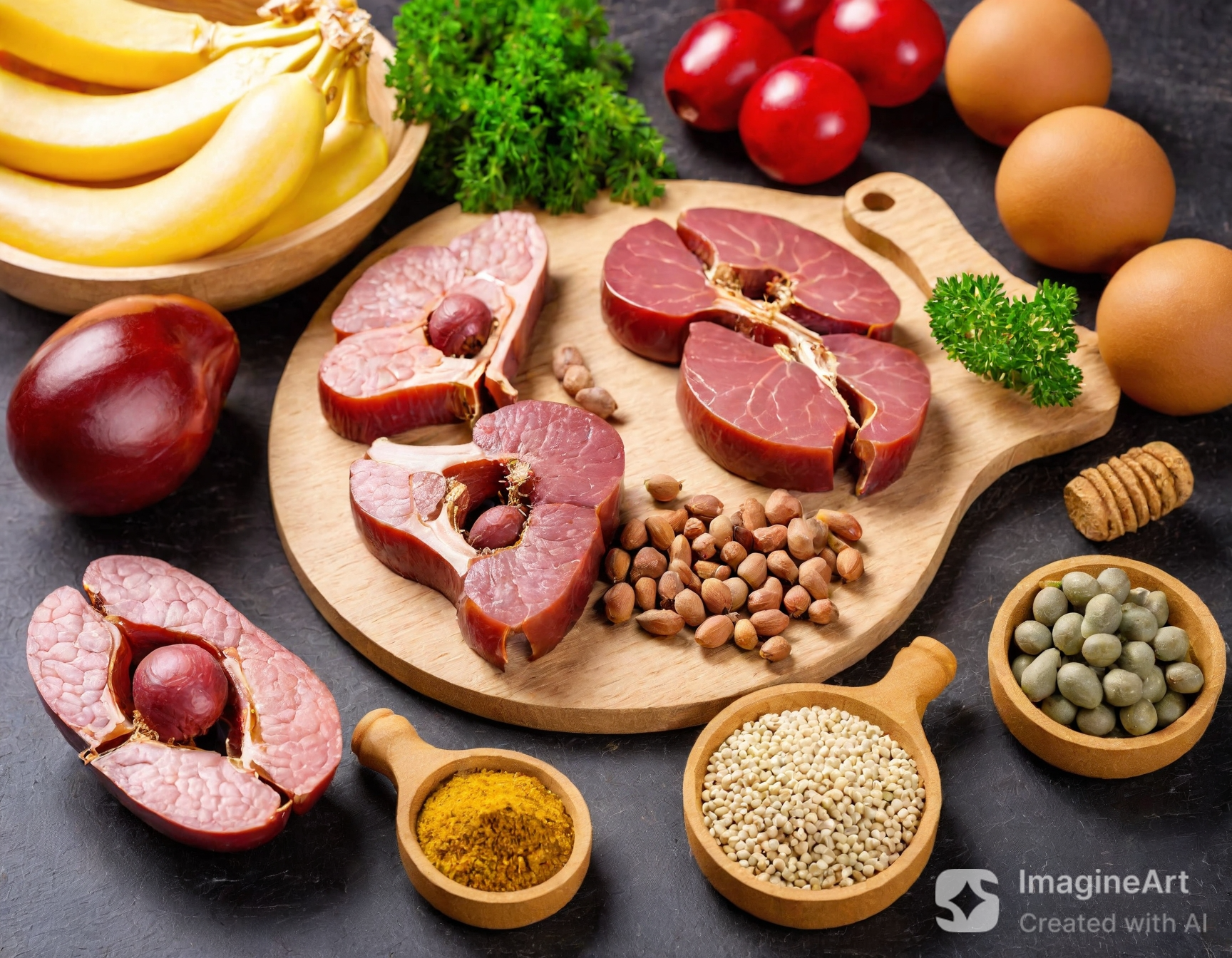Introduction: The Power of Healing Foods for Kidneys and Liver
The liver and kidneys are essential for blood filtration, bodily detoxification, and general health maintenance. But over time, these essential organs can be harmed by poor nutrition, stress, drugs, and pollutants in the environment. Thankfully, there are potent therapeutic foods found in nature that can help cleanse, maintain, and even repair the liver and kidneys. In this article, we will explore foods that help repair the kidneys and liver, backed by nutrition science, and how to incorporate them into your daily routine.
Why Kidney and Liver Health Matters
Before consuming particular foods, it’s critical to comprehend how the liver and kidneys work:
- The kidneys balance electrolytes, control blood pressure, and eliminate waste and extra fluid.
- The liver creates vital proteins for blood coagulation, breaks down pollutants, and processes nutrition.
Maintaining the health of these organs is crucial for lifespan, disease prevention, and general well-being.
Top 10 Foods That Help Repair Kidneys and Liver
1. Leafy Green Vegetables Help Repair Kidneys and Liver
Antioxidants, fibre, and vital vitamins are abundant in leafy greens such as spinach, kale, and Swiss chard. They aid in lowering inflammation and promoting the liver’s natural detoxification mechanism.
2. Garlic Foods Help Repair Kidneys and Liver
Sulphur components found in garlic stimulate liver enzymes and aid in the removal of poisons. Additionally, it possesses antibacterial and anti-inflammatory qualities that are good for the functioning of the kidneys and liver.
3. Berries Foods Help Repair Kidneys and Liver
Antioxidants found in cranberries, blueberries, and strawberries shield the kidneys and liver from oxidative damage. Particularly, cranberries are well known for avoiding kidney-damaging urinary tract infections.
4. Fatty Fish Foods Help Repair Kidneys and Liver
Omega-3 fatty acids, which are abundant in salmon, mackerel, and sardines, lower inflammation and promote the function of healthy liver enzymes. Additionally, they lower blood pressure, which eases kidney strain.
5. Apples
Pectin, a form of fibre that aids in the removal of toxins from the digestive system, is abundant in apples. In addition to indirectly helping the kidneys, this lessens the pressure on the liver.
6. Turmeric
Curcumin, found in this golden spice, has potent antioxidant and anti-inflammatory qualities. In addition to supporting liver function, turmeric may lessen kidney irritation.
7. Beets
Fibre and betalains, which are found in beets, aid in liver cleansing and enhance bile flow. Additionally, they promote the synthesis of nitric oxide, which enhances blood flow to the kidneys.
8. Green Tea
Green tea is well-known for its potent catechins, which are antioxidants. It promotes detoxification, strengthens the liver, and shields renal tissue from harm.
9. Olive Oil
Olive oil, which is rich in antioxidants and good fats, lowers liver fat, raises enzyme levels, and helps reduce inflammation in the kidneys and other parts of the body.
10. Watermelon
As a natural diuretic and hydrator, watermelon aids in the kidneys’ removal of toxins. It also promotes liver function and lowers inflammation.
Supporting Nutrients for Kidney and Liver Repair
- Vitamin C: Enhances detoxification and immunity. Present in bell peppers, broccoli, and citrus fruits.
- Vitamin E: Prevents oxidative damage to cells. Found in seeds and nuts.
- Selenium: Necessary for the activity of liver enzymes. Found in sunflower seeds, tuna, and Brazil nuts.
- Zinc: Supports the immune system and aids in tissue repair. Present in dairy, whole grains, and legumes.
- Vitamin D: Crucial for immune modulation and may support kidney health. Explore the best Vitamin D supplements in the U.S.
- Iron: Important for oxygen transport and liver function. Learn the best time to take iron supplements for maximum benefit.
FAQs About Foods That Help Repair Kidneys and Liver
Q1: Can damaged kidneys and liver be repaired naturally?
Yes, a healthy diet, adequate hydration, and lifestyle modifications can frequently repair or improve mild to moderate damage. However, severe injury necessitates medical care.
Q2: How much water should I drink to support kidney health?
Eight to ten glasses of water should be consumed daily by most people. However, people with kidney illness should see a doctor because they may need to decrease their fluid intake.
Q3: Are there any foods to avoid for liver and kidney health?
Indeed. Steer clear of processed foods, red meat, alcohol, too much sugar, and salty snacks as they can impair liver and kidney function.
Q4: Is coffee good or bad for the liver?
Coffee can support liver enzyme levels and lower the risk of liver disease when consumed in moderation.
Q5: How long does it take for the liver and kidneys to heal?
The liver can regenerate in a few weeks with the right care. Depending on what caused the damage, kidney function may progressively improve over several months.
Conclusion: Nourish Your Organs with the Right Foods
Every day, your kidneys and liver put in a lot of effort to maintain the cleanliness and equilibrium of your body. One of the best methods to improve their lifetime and performance is to provide them with the proper nutrition. You can take proactive measures to improve your health by including foods like leafy greens, berries, fatty salmon, garlic, and green tea in your diet that aid in liver and kidney repair. For best effects, combine them with a toxin-free lifestyle, frequent exercise, and enough hydration. According to Healthline, eating a clean diet rich in antioxidant-packed foods can significantly support liver and kidney function.

